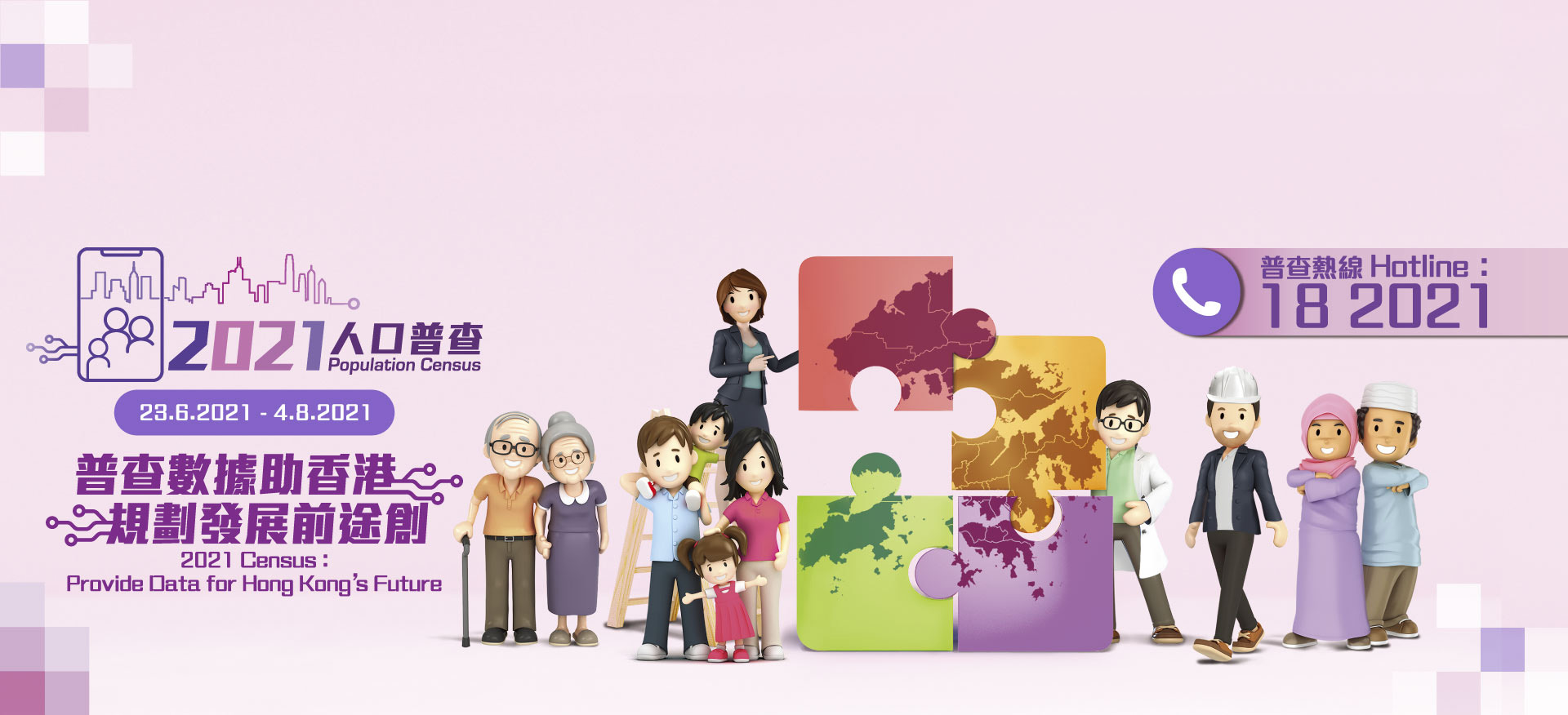
2021 Census to collect data on elderly persons requiring care
The 2021 Population Census has already commenced on 23 June 2021. Vital for planning the future development of Hong Kong, the Census serves as an essential source of statistical information for policymakers, academic researchers and businesses alike. This latest edition sees the introduction of a new data topic, “Elderly Persons Requiring Care” under Demographic and Social Characteristics, which represents an important step in preparing for the challenges posed by the rapidly ageing population and filling gaps in the city’s carer support policy.
As pointed out in the last issue of the EOC Journal Equality Perspectives, carers are far from a homogeneous group. While some look after elders in the family, others are responsible for the care of children with special educational needs, family members with visual, hearing or mobility challenges, etc. Many carers are also senior citizens or people with disabilities themselves.
To date, there is no official tally of the total number of carers in Hong Kong, let alone a detailed breakdown according to the number of family members under their care, the age and health conditions of the cared-for, the carer’s own age and health conditions, the carer’s ethnicity and language abilities, whether the carer has applied for Government allowances or used NGO-run services, and whether he or she is the sole carer, among other relevant factors. Without an accurate grasp of carer-specific data, it is almost impossible to formulate a policy that can effectively address their unique needs.
According to the Chief Executive’s 2020 Policy Address delivered last November, the Labour and Welfare Bureau is conducting an in-depth study designed to provide empirical support for devising a comprehensive carer policy. This is an encouraging development. Indeed, there is a need to collect data about carers in a more holistic manner, so that their challenges can be better identified, and alleviated with more tailored support.

